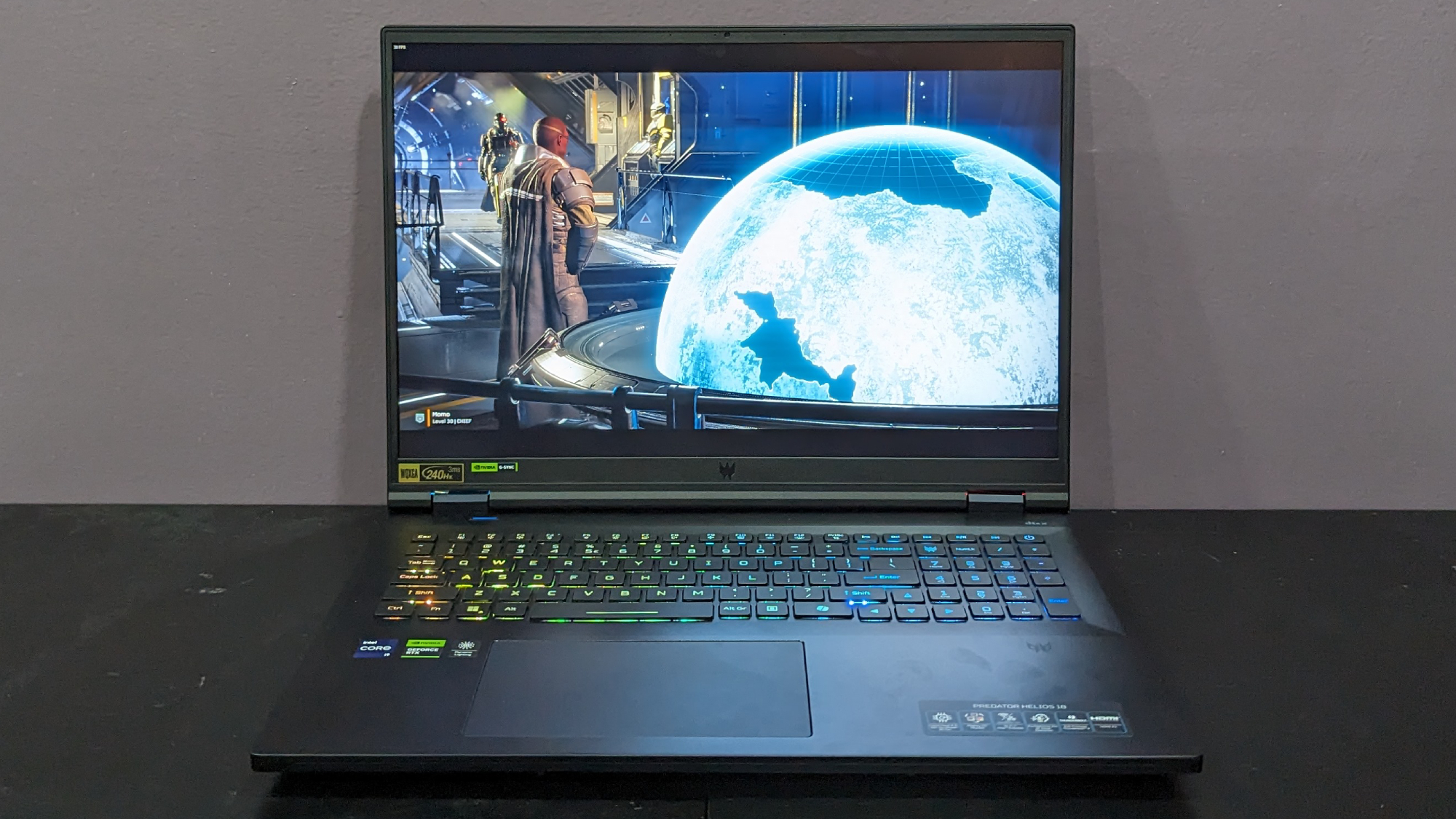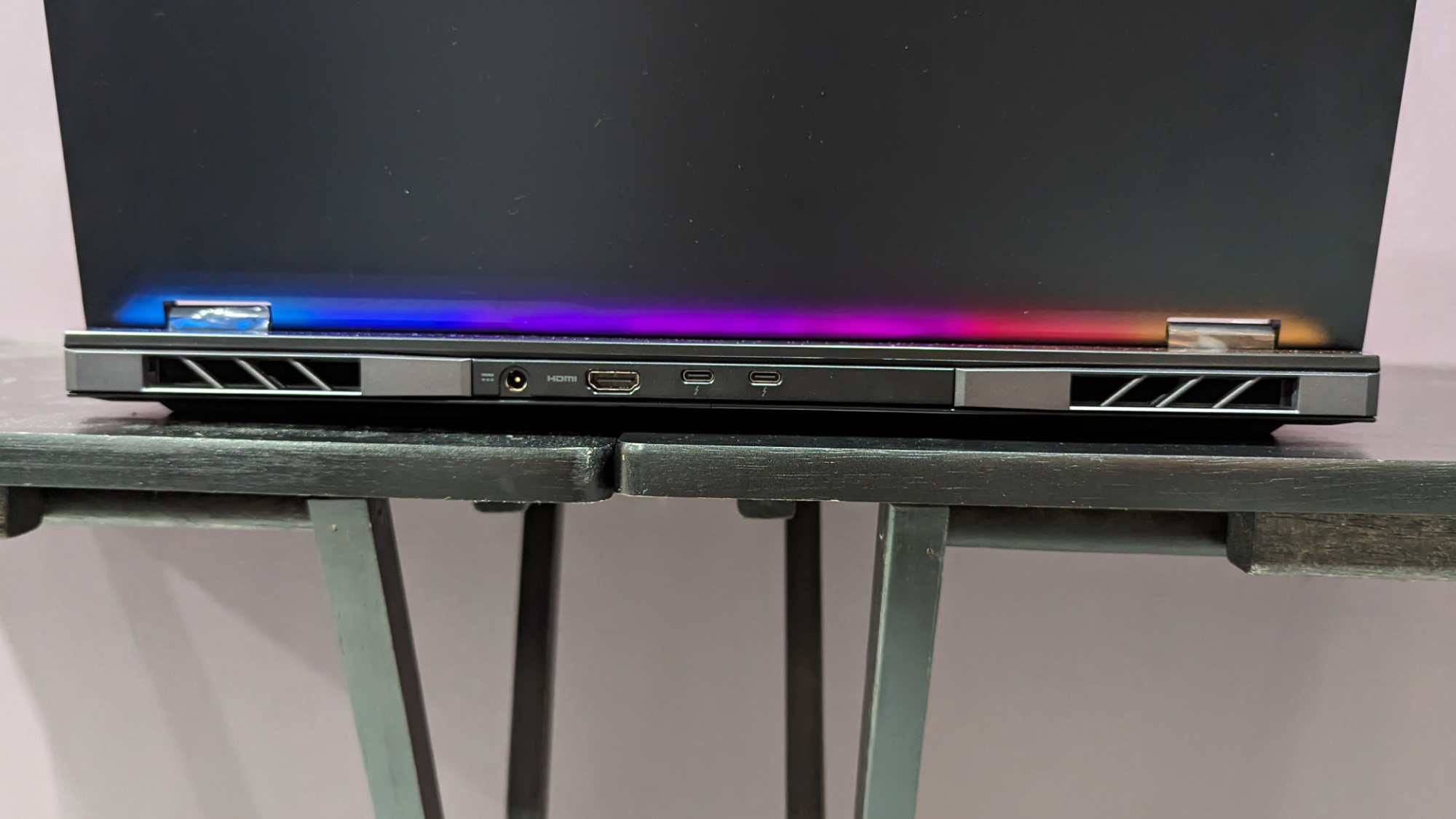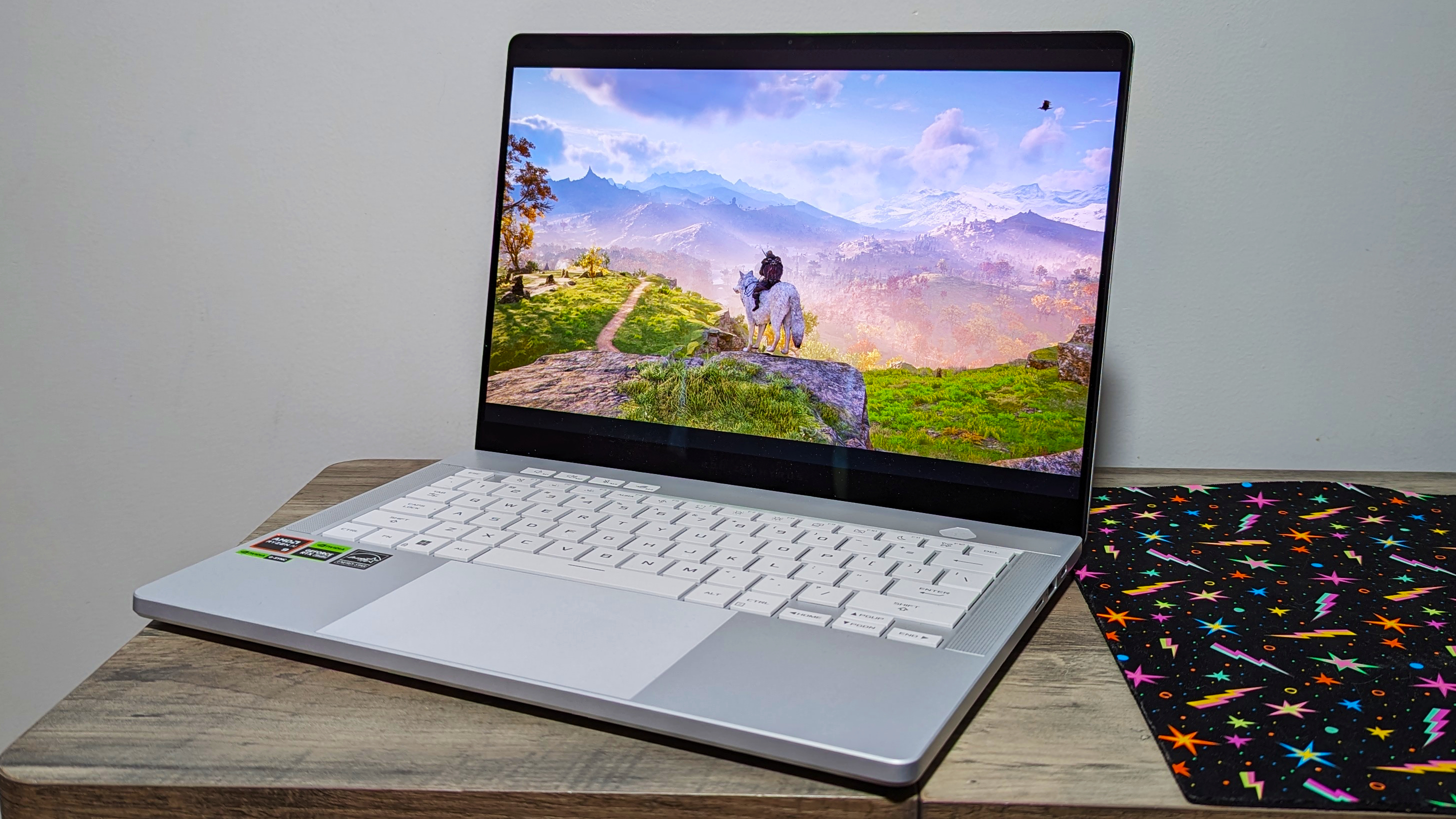
What if you don’t want to use a gaming laptop the way it was intended?
There are numerous reasons for purchasing a gaming laptop, and everyone’s needs differ. For example, some might want to turn theirs into a makeshift, portable PC powering a slew of external devices like a desktop.
If you’re looking for something along those lines, you must be pickier than ever. Unlike with a gaming desktop, there’s little to no room for modularity, and you’re stuck with what you buy. Knowing exactly what you need before you invest thousands of dollars is vital.
But you shouldn’t look at a typical gaming laptop buying guide if you’re looking for a makeshift gaming laptop-turned-desktop. There’s a different hierarchy of priorities in these cases, and you can potentially save money by investing in hardware that prioritizes what you need while ignoring what you don’t.
How to choose the right gaming laptop to replace your desktop PC
While you’ll want powerful hardware to run games at high framerates, there’s a facet of gaming laptops many won’t immediately think of when shopping around, but you’ll regret it if you don’t make the right choice: Ports.
Acquiring the ideal selection of ports isn’t just necessary. It should be your first priority. Thunderbolt 4 is a must, as it creates a safety barrier if you find yourself months into a purchase and realize you need more ports than you currently have. If that happens, you can simply purchase a docking station rather than being trapped without enough ports.

Some laptops, like the Acer Predator Helios 18, even feature two Thunderbolt 4 ports. While one is fine, doubling that number is a huge boon and will make your life significantly easier. I have three monitors connected to my desktop PC, alongside two USB Type-C and eight USB Type-A ports in use. No gaming laptop can accommodate this load without docking stations connected to Thunderbolt 4 ports.
However, it’s also good to ensure other ports are available. If your gaming station is near a router, you’ll absolutely want an ethernet connection for ideal internet speeds. This isn’t necessary if your wireless speed is excellent, but wired connections are reliable and faster.
The Helios 18’s total port selection features two Thunderbolt 4 slots, an Ethernet port, a microSD slot, an audio jack, three USB Type-A ports, a Kensington Lock, and an HDMI 2.1. This is an excellent collection of ports, so if you’re on the prowl for a gaming laptop, ensure it’s providing your bare necessities—there are only a few exceptions depending on your use case.
HDMI 2.1 is an absolute must. Kensington Lock is only necessary if you plan to use it as a hybrid between on-the-go and stay-at-home, while microSD and other SD slots are only worth it if you use them. Having a healthy number of USB Type-A and USB Type-C ports will make things more convenient, even if you don’t purchase a docking station.
Ports aren’t the end-all-be-all of turning a gaming laptop into a makeshift desktop, as you’ll want a powerful, modern GPU and processor. This will adapt to your budget, but there are some facets you can save money on if you plan to use the laptop as a desktop.
You might not need these things for a makeshift desktop replacement
A bright, vivid display and long-lasting battery life are aspects we commend when recommending a gaming laptop. But in this case, their inclusion will only siphon more money from your wallet. Meanwhile, you’ll make little use of them.
A display’s quality doesn’t matter if the lid will remain shut while the laptop is connected to one or more external monitors. At Laptop Mag, we put an emphasis on the importance of high refresh rate, resolution, DCI-P3 color coverage, nits of brightness, and whether or not it’s OLED, but in this case, you can save yourself money and get the bare minimum.

Long-lasting battery life is also unnecessary. We’ve tested gaming laptops like the Asus ROG Zephyrus G14 that have longer than eight hours of battery life. If your gaming laptop will be connected to an outlet at all times anyway, there’s no point in worrying about this, especially since gaming laptops with better battery life often cost more.
If you plan to use the gaming laptop as a makeshift desktop and also bring it on-the-go once in a while, then this section can be ignored. It’s still good to invest in long-lasting battery life and a quality display if you can afford it, but it won’t be necessary for everyone.







